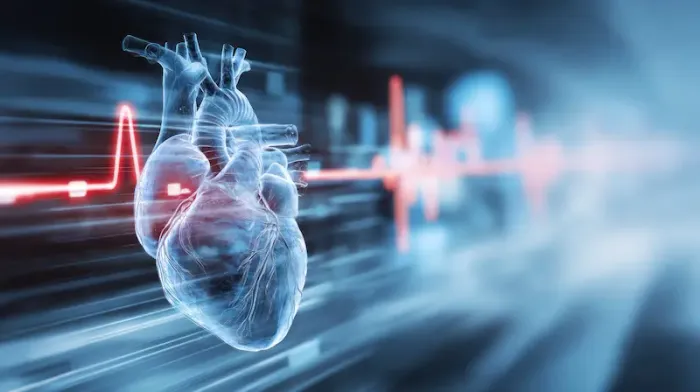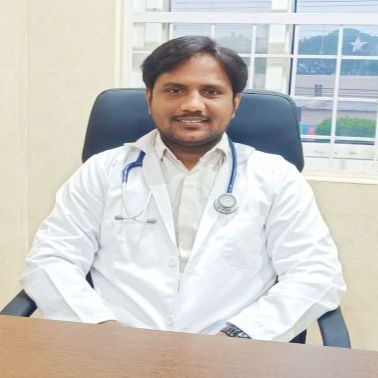Understanding Congenital Heart Disease
Learn what congenital heart disease is, including its types, causes, and symptoms. Understand how it affects children and adults, along with diagnosis and treatment options.


Congenital heart disease (CHD) is a term used to describe heart defects present at birth. These conditions affect the structure and function of a baby’s heart and can vary from mild to severe. If you or a loved one has been diagnosed with CHD, it’s natural to have questions and concerns. This guide aims to explain congenital heart disease in simple terms, covering its causes, symptoms, treatment options, and ways to manage it effectively.
What is Congenital Heart Disease?
Congenital heart disease refers to one or more abnormalities in the heart's structure that develop before birth. These defects can affect:
The heart walls (septal defects, like holes in the heart).
The heart valves (narrowing or improper function).
The blood vessels (abnormal connections or blockages).
While some defects are minor and may not require treatment, others can be life-threatening and need immediate medical attention.
Common Types of Congenital Heart Disease
Some of the most common types include:
1. Atrial Septal Defect (ASD) – A hole in the wall between the heart's upper chambers (atria).
2. Ventricular Septal Defect (VSD) – A hole in the wall between the heart's lower chambers (ventricles).
3. Patent Ductus Arteriosus (PDA) – A blood vessel that fails to close after birth, affecting blood flow.
4. Tetralogy of Fallot – A combination of four heart defects that reduce oxygen in the blood.
5. Coarctation of the Aorta – Narrowing of the aorta, the main artery carrying blood from the heart.
What Causes Congenital Heart Disease?
The exact cause is often unknown, but several factors may increase the risk:
Genetic Factors – Family history of heart defects or genetic conditions like Down syndrome.
Maternal Health – Infections (like rubella), uncontrolled diabetes, or certain medications during pregnancy.
Lifestyle Factors – Smoking, alcohol, or drug use during pregnancy.
While some risk factors can’t be controlled, maintaining a healthy pregnancy can help reduce risks.
Signs and Symptoms of Congenital Heart Disease
Symptoms depend on the type and severity of the defect. In babies, common signs include:
Bluish skin, lips, or nails (cyanosis) – Due to low oxygen levels.
Fast breathing or difficulty feeding – Baby tires easily while nursing.
Poor weight gain – Struggling to grow as expected.
Excessive sweating, especially during feeding.
In older children or adults, symptoms may include:
Shortness of breath during activity.
Fatigue or dizziness.
Swelling in hands, feet, or ankles.
Irregular heartbeats (arrhythmias).
Some people may not show symptoms until later in life, which is why regular check-ups are important.
Consult Top Heart Specialists
How is Congenital Heart Disease Diagnosed?
If a doctor suspects CHD, they may recommend:
Fetal Ultrasound (Echocardiogram) – Detects heart defects before birth.
Newborn Pulse Oximetry Test – Checks oxygen levels in a baby’s blood.
Echocardiogram (Echo) – Uses sound waves to create heart images.
Electrocardiogram (ECG/EKG) – Measures the heart's electrical activity.
Cardiac MRI or CT Scan – Provides detailed heart images.
Early diagnosis helps in planning the right treatment.
Treatment Options for Congenital Heart Disease
Treatment depends on the defect’s type and severity:
1. Medications – Help manage symptoms (e.g., diuretics for fluid buildup, beta-blockers for heart rate control).
2. Catheter Procedures – Minimally invasive techniques to repair defects (e.g., closing holes with a device).
3. Open-Heart Surgery – Needed for complex defects (e.g., valve repair, heart reconstruction).
4. Heart Transplant – Rarely required for severe cases.
Many children with CHD grow up to lead active lives with proper care.
Living with Congenital Heart Disease: Tips for Patients & Families
If you or your child has CHD, these steps can help maintain heart health:
For Babies & Children:
Follow up regularly with a pediatric cardiologist.
Ensure vaccinations are up-to-date to prevent infections.
Encourage physical activity as advised by the doctor.
For Adults with CHD:
Stay active but avoid overexertion (consult your doctor for safe exercises).
Maintain a heart-healthy diet (low salt, high fiber, and balanced nutrients).
Avoid smoking and excessive alcohol.
Monitor for symptoms like fatigue, swelling, or irregular heartbeat.
Emotional & Mental Well-being:
Seek support groups for families affected by CHD.
Counseling can help cope with anxiety or stress related to the condition.
When to See a Doctor?
Consult a cardiologist if you notice:
Worsening fatigue or breathing difficulties.
Swelling in legs or sudden weight gain (fluid retention).
Fainting spells or irregular heartbeats.
Early intervention can prevent complications.
Can Congenital Heart Disease Be Prevented?
While not all cases can be prevented, pregnant women can reduce risks by:
Getting vaccinated (e.g., rubella).
Managing chronic conditions like diabetes.
Avoiding harmful substances (alcohol, tobacco).
Taking prenatal vitamins (especially folic acid).
Need Expert Advice?
If you or a loved one has concerns about congenital heart disease, you can book a consultation with a cardiologist through Apollo 24|7. Early diagnosis and care make all the difference!
Final Thoughts
Congenital heart disease may sound scary, but with advances in medicine, many people with CHD live full, healthy lives. Early detection, proper treatment, and regular follow-ups are key. If you suspect any heart-related symptoms in yourself or your child, don’t hesitate to consult a specialist.
Consult Top Heart Specialists
Consult Top Heart Specialists
Dr Moytree Baruah
Cardiologist
10 Years • MBBS, PGDCC
Guwahati
Apollo Clinic Guwahati, Assam, Guwahati

Dr. Tripti Deb
Cardiologist
40 Years • MBBS, MD, DM, FACC, FESC
Hyderabad
Apollo Hospitals Jubilee Hills, Hyderabad

Dr. Zulkarnain
General Physician
2 Years • MBBS, PGDM, FFM
Bengaluru
PRESTIGE SHANTHINIKETAN - SOCIETY CLINIC, Bengaluru

Dr. Haider Shaik.
Cardiologist
5 Years • MBBS, MD (Pulmonology) DrNB (Cardiology)
Guntur
Kalam chest and multi-speciality clinic, Guntur

Dr. E Prabhakar Sastry
General Physician/ Internal Medicine Specialist
40 Years • MD(Internal Medicine)
Manikonda Jagir
Apollo Clinic, Manikonda, Manikonda Jagir
(150+ Patients)